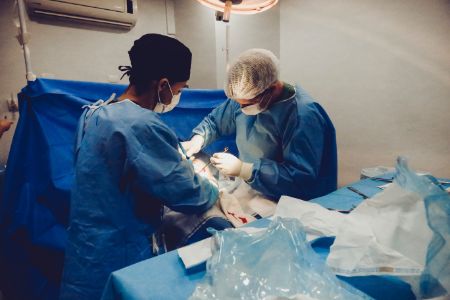Over 500,000 children in the United States currently reside in some form of foster care. Placement in foster care can occur for a variety of reasons. Children who are victims of parental or caregiver abuse may be removed from their parent’s home by a child welfare agency and placed in foster care. Other reasons for foster placement include severe behavioral problems in the child which the parents are not capable of managing and/or a variety of parental problems, such as illness (physical or emotional), incarceration, alcohol/substance abuse, intellectual disability, or unexpected death which leave the child without an appropriate caregiver. But what about cases in which children are erroneously removed from parental homes?
This is what happened in the Texas case of Lorina Troy and her family. Lorina’s ordeal started in 2015 when her infant son was found to have a buildup of fluid in his brain. A child abuse pediatrician at an Austin hospital overlooked an underlying medical condition and said the boy was a victim of shaken baby syndrome. That diagnosis led the state to take both of Lorina’s children.
The children spent five months in foster care, and Lorina’s husband, Jason, was charged criminally before another doctor reviewed the baby’s medical records and found that the excess fluid in the child’s head was actually the result of the undiagnosed neurological condition.
In a recent report, the federal Administration on Children, Youth and Families estimated that there are nine abused children for every 1000 in the population. But the report also says that only 20% of child abuse investigations are substantiated. The rest, 80%, are cases in which the children are found to not be victims of maltreatment. What the report doesn’t count is the number of investigations leading to the state taking the child from the parents and placing them in foster care before the parents are ultimately cleared of abuse. No one knows exactly how many incidences of this kind of misdiagnosis occur each year.
NBC News along with the Houston Chronicle recently did a yearlong investigation highlighting the plight of parents accused of child abuse based on mistaken or overstated reports by doctors. They received hundreds of stories just like Lorina’s. These stories came from all over the United States demonstrating the nationwide nature of this issue.
The news reports focused on child abuse pediatricians. Child abuse pediatricians are a small but growing subspecialty of physicians who work closely with state child welfare agencies. They provide, “expert reports and court testimony in thousands of cases a year, shielding untold numbers of abused children from additional harm.” However, the investigation found that when the evidence is less clear, a mistaken or overstated diagnosis of child abuse can be made.
Child abuse pediatricians must determine whether an injury is the result of trauma or was accidental or natural. But once a child abuse expert makes a determination of abuse, it becomes very difficult to change the tenor of the conversation. There is no requirement for getting a second opinion. And often, other doctors in the community are reluctant to contradict colleagues. In some cases, parents did get second opinions that disagreed with the diagnosis of abuse, but these were ignored by Child Protective Services (CPS).
In Texas and in several other states, the work of these doctors is funded in part by grants from the state’s child welfare and public health agencies, which deputize the hospital-based medical teams to review cases on behalf of CPS. Their work is particularly vital in cases involving children too young to describe what happened to them.
But in their zeal to protect children, some child abuse pediatricians have also implicated parents who appear to have credible claims of innocence, leading to traumatic family separations and questionable criminal charges. In some cases reviewed by reporters, treating physicians or other medical experts disagreed with the conclusions of state-backed child abuse pediatricians, but CPS did not take those doctors’ opinions into consideration before separating families.
This has resulted in families going through the horror at being accused of abuse and the agony of weeks or months apart from their children. Many parents have trouble finding lawyers or medical experts to review their cases and often must take out tens or hundreds of thousands of dollars in loans for legal fees. Lorina’s family ended up losing $80,000 in lost wages, legal fees, and medical costs.
The reporting reveals a legal and medical system that sometimes struggles to differentiate accidental injuries from abuse, particularly in cases involving children too young to describe what happened to them. Physicians intent on protecting the most vulnerable in some instances have overstated the reliability of their findings, using terms such as “100 percent” and “certain” to describe conclusions that usually cannot be proven with absolute confidence. Child welfare workers, overworked and untrained in complex medical issues, are not always sure how to proceed when the primary evidence against a caregiver comes in the form of a doctor’s note.
Lorina has now written a book, titled “Miracles of Faith,” that goes into the details of her family’s journey through the medical and legal systems and how their faith saw them through it all. She’s currently writing a second book, a continuation of the first, which will consist of her journey towards healing and advocating for legislative changes.



